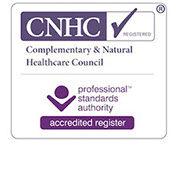Blog
Cholesterol and Cardio Vascular Disease
What is cholesterol?
Cholesterol is a major sterol in animal tissue, made principally by the liver and is a structural component of every cell membrane in the body and is the precursor to hormones that include estrogens, progesterone, testosterone and cortisol in addition to vitamin D.
It is transported around the body by various (lipo) proteins including LDL, HDL and VLDL – what we have commonly termed good and bad cholesterol – although these terms refer to the carrier, not the actual cholesterol inside the molecule.
LDL – Low density lipoprotein is termed ‘bad’ cholesterol is made by the liver and sent out to body tissues.
HDL – High density lipoprotein is termed ‘good’ cholesterol as it carries cholesterol back from your cells to the liver, to be broken down and eliminated from the body.
High levels of LDL increase the risk of oxidised LDL formation which can fuel atherosclerosis and affect the layer of cells that line the arteries (the endothelium). The build up of LDL in the arteries is often cited as the cause of heart disease but extensive research has failed to show evidence to support a role of dietary cholesterol in the development of cardiovascular disease.
Research has shown that the ratio of LDL to HDL is far more important than each individual level in order to maintain the appropriate balance of lipoproteins.
So what causes high cholesterol?
High cholesterol is influenced by many factors and can result from other imbalances in the body, including high insulin, insulin resistance, excess calories and high triglycerides – which result from eating too many carbohydrates (sugar), high hydrogenated fat intake, stress, lack of physical activity and hypothyrodism.
Diagnosis of Diabetes type II increases your risk of CVD by approx 300%-500%, and is influenced by many factors including:
Hypertension which is associated with insulin resistance in up to 50% of cases, obesity, dyslipidaemia: lipid (fat) abnormalities are associated with insulin resistance and are correlated with cardiovascular risk , exercise, smoking, insulin resistance, inflammation, homocysteine & vitamin status, genetics and epigenetics.
Can we influence cholesterol levels with diet & lifestyle?
- Exercise helps to increase HDL levels, reduce blood pressure, improve insulin sensitivity and maintain a healthy weight.
- Reducing the glycemic load of the diet and reducing excessive high fat dairy and red meat intake is beneficial.
- Increasing fruits and vegetables with fibre. Vitamin C ( citrus fruits, kiwi, red peppers, berries, green vegetables, pineapple, mango etc), can inhibit the oxidation of LDL cholesterol, strengthen the blood vessel walls, improve vasodilation and help prevent coronary artery disease.
- Polyphenols found in fruits, vegetables and nuts contain many antioxidant properties including the ability to inhibit the oxidation of low-density lipoprotein (LDL), which is an accepted reason for the preventive effect of polyphenols on the development of atherosclerosis.
- Use Extra Virgin Olive Oil which has demonstrated LDL lowering abilities.
- Nuts: Large studies have demonstrated that including 1-4 servings of nuts per week was associated with about a 40% reduction in risk of coronary heart disease, even after adjusting for conventional risk factors including hypertension, smoking, diabetes and hyperlipidemia. Nuts are reported to have beneficial effects of a predicted 16% reduction in LDL cholesterol.
- Flaxseeds have demonstrated total and LDL cholesterol reducing abilities.
- Fish: Fatty fish including Salmon, Mackerel, Sardines and Anchovies contain omega 3 fatty acids that may decrease cholesterol and reduce inflammation.
- Avocado has shown to increase HDL levels and reduce LDL levels.
- Remove sugars, processed foods and refined grains as they can reduce HDL (good) levels.
- Remove trans fats that are found in packaged foods. Trans fats can reduce HDL cholesterol, increase LDL cholesterol and increase risk of coronary heart disease.
References
Bernstein AM, Sun Q, Hu FB, et al. Major dietary protein sources and risk of coronary heart disease in women. Circulation. 2010;122(9):876
Danxiz, Y. Xia0-Ou, S. Honglan, L. ‘Dietary carbohydrates, refined grains, glycemic load, and risk of coronary heart disease in chinese adults’, Am J Epidemiol 2013 Nov 15; 178 (10): 1542-1549.
Franke,l EN. Kanner, J. German, J. Inhibition of oxidation of human low-density lipoprotein by phenolic substances in red wine. Lancet 1993; 341:454–7.
Fraser GE, Lindsted KD, Beeson WL. Effect of risk factor values on lifetime risk of and age at first coronary event: the Adventist Health Study. Am J Epidemiol 1995; 142:746–58.
Hu FB, Stampfer MJ. Nut consumption and risk of coronary heart disease: a review of epidemiologic evidence. Curr Atheroscler Rep 1999;1:204–9.
Kris-Etherton, P. ‘Trans-fats and coronary heart disease’, Crit Rev Food Sci Nutr. 2010 Dec; 50 (s1): 29-30.
Powell KE, Thompson PD, Caspersen CJ, Kendrick JS. Physical activity and the incidence of coronary heart disease. Annu Rev Public Health. 1987; 8:253.
Sabate J, Radak T, Brown J. The role of nuts in cardiovascular disease prevention. In: Wildman REC, ed. Handbook of nutraceuticals and functional foods. Boca Raton, FL: CRC Press, 2001:477–95.
Satija A, Bhupathiraju SN, Spiegelman D, et al. Healthful and Unhealthful Plant-Based Diets and the Risk of Coronary Heart Disease in U.S. Adults. J Am Coll Cardiol. 2017;70(4):411
Soliman, G. (2018). Dietary cholesterol and the lack of evidence in cardiovascular disease. Nutrients 2018 Jun, 10 (6):780.
www.my.americanheart.org
Americam Heart Association: American Stroke Association
Wilcox, G. Insulin and Insulin resistance. The Clinical Biochemist Reviews 2005 May; 26 (2): 19-39.
Martin-Timon, I. Devillano-Collantes, C. Segura-Galindo, A. Type 2 diabetes and cardiovascular disease: have all risk factors the same strength?. World Journal of Diabetes 2014 Aug 15; 5 (4): 444-470.
Lukasz, A. Hillgruber, C/ Oberleithner, H. Endothelial glycocalyx breakdown is mediated by angiopoetin-2. Cardiovascular Research 2017 May; 113 (6): 671-680.







